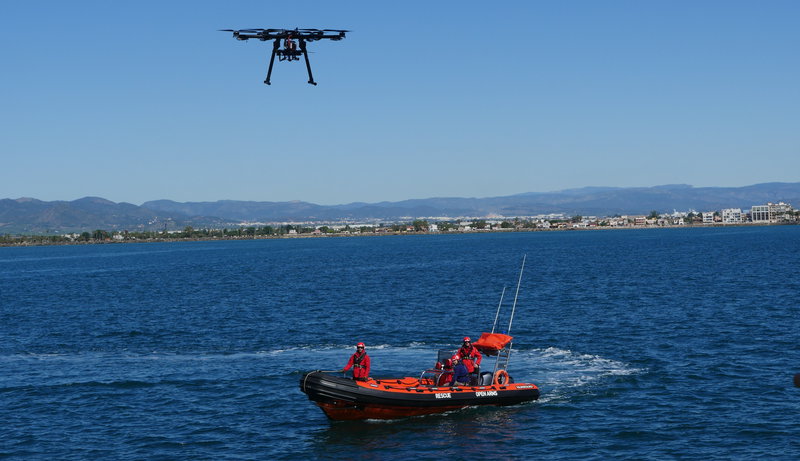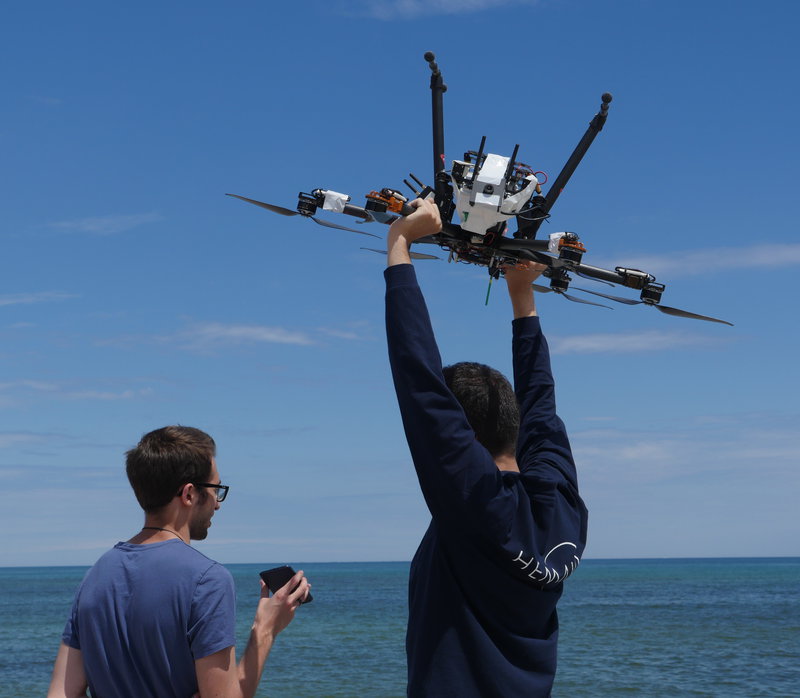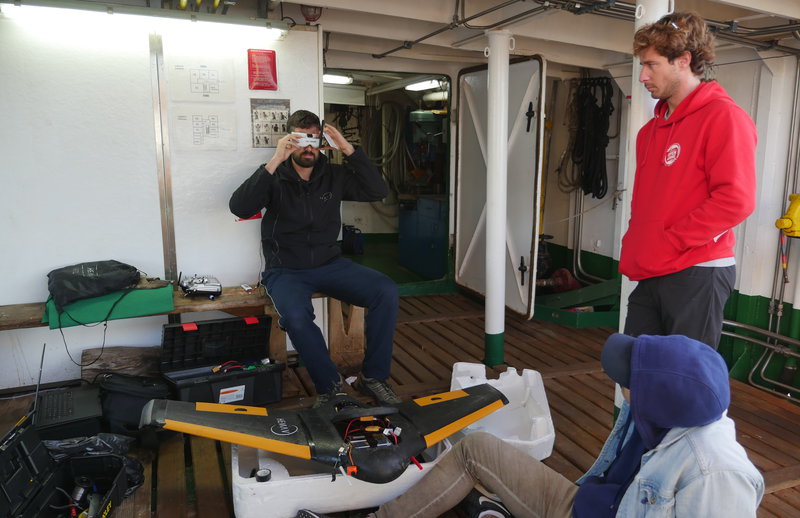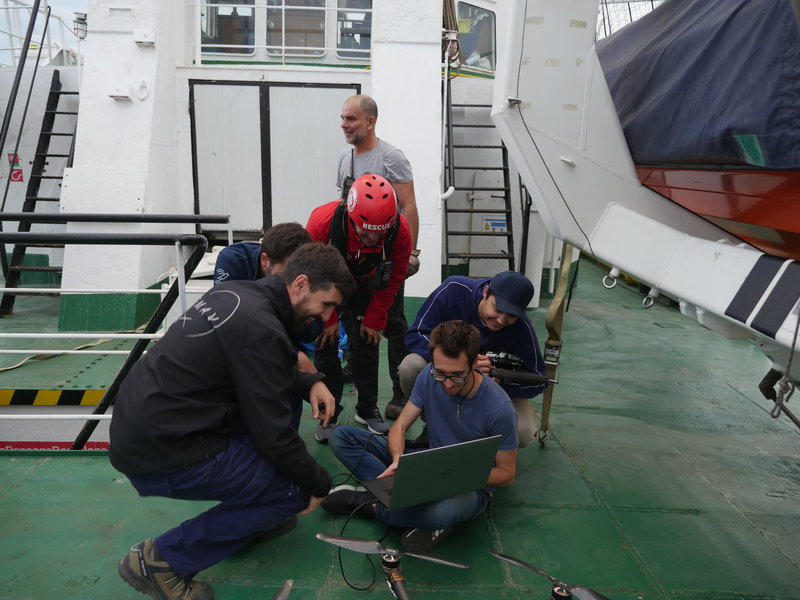Drones to save lives
The Proactiva Open Arms NGO could improve its search and rescue efforts in the Mediterranean by using drones developed by the UPC and the Hemav Foundation
When it comes to rescuing people at sea, there’s no time to lose, and a drone can very quickly detect a ship in trouble and alert the emergency services immediately. That is why three students from Catalonia’s Polytechnic University (UPC), in coordination with the Hemav aeronautic foundation, have developed a reconnaissance drone for use at sea. The use of the device could help rescue missions carried out by the Proactiva Open Arms NGO, the Badalona-based organisation that has saved almost 60,000 people in the Mediterranean since 2015.
The development of the drone is part of the Freeda project, which has received help from the UPC’s Centre for Development Cooperation (CCD), the Barcelona Metropolitan Area (AMB), the Banc Sabadell Foundation, and the Catalana Alejandre Foundation.
Aeronautical engineer Sergi Tres, a former UPC student and head of the Hemav Foundation, is coordinating the initiative. “The idea of helping refugees came up when I did my final degree project. The Hemav Foundation got in touch with Open Arms and we began deciding on the features that the drone should have,” he says.
Tres’ work consisted of studying the project’s viability and then putting it into effect. In the past year, the drone has been developed by three UPC students: Francesc Vilaplana, who is studying an engineering degree in aerospace vehicles, Azamat Kinzyabaev, an engineering undergraduate in aerospace systems, and Eloy Peña, who is doing a Master’s in aerospace science and technology. The former studies at the Escola Superior d’Enginyeries Industrial, Aeroespacial i Audiovisual in Terrassa, while the other two are studying at the Escola d’Enginyeria de Telecomunicació i Aeroespacial in Castelldefels.
The project is part of their degree studies:“When I learned about the chance to take part in the project, I was attracted by its size and the fact that it was a real challenge. Final degree projects can be very theoretical, so taking part in an initiative like this, which can be implemented, is an incentive and motivating,” says Kinzyabaev.
The students have been able to call on help and advice from Hemav engineers. This tech company, which has its base in Barcelona, promotes the use of drones in spheres such as agriculture, energy facilities, and civil engineering. The organisation’s foundation has promoted this work through innovation projects that include social, humanitarian and environmental initiatives.
In May, the first trial was carried out at sea to check the operational validity of the drones on the Open Arms vessel. According to Tres, the main aim of the trial was to carry out the first tests on the ability of the drones to land on the ship – the most complicated part as the vessel is in constant motion. The trial also tested the reach of the telecommunications system and “created a database of aerial images for training the artificial intelligence program that we have developed for the automatic detection of vessels.”
For Ricardo Sandoval, the captain of the Open Arms ship, having the support of the drones in its search and rescue efforts means they can cover a broader area. “We hope to have them available as soon as possible,” he says.
The use of drones offers the advantage of covering long distances and expanding the search area, and working with different platforms at the same time means large areas can be monitored continuously. The drones can cover wide areas completely autonomously, taking thermal images as they go. These images are automatically processed and relayed to the ship with information about the direction, position and speed of the vessel detected. They have an added bonus of improving crew safety, as they can also identify the threat of boats used by people traffickers.
Yet, implementing the Freeda initiative requires resources, and the Hemav Foundation is working with Worldcoo, which helps fund social projects through small online donations.
feature technology
Witnessing what no one sees
From September 2015 to August 2018, Proactiva Open Arms saved 59,706 lives, people who were delivered to dry land without dying in the attempt. This non-profit organisation set up by Òscar Camps sees first-hand the lamentable role Europe has played in the refugee crisis, and the indifference with which the continent looks on at the deaths of tens of thousands of people fleeing persecution, war and poverty. “We specialise in surveillance and rescue missions of boats carrying people who need help in the Aegean and Central Mediterranean sea, as well as raising awareness of all the injustices that are happening which have gone untold,” is how the NGO, which depends on privated donations, describes its work.








